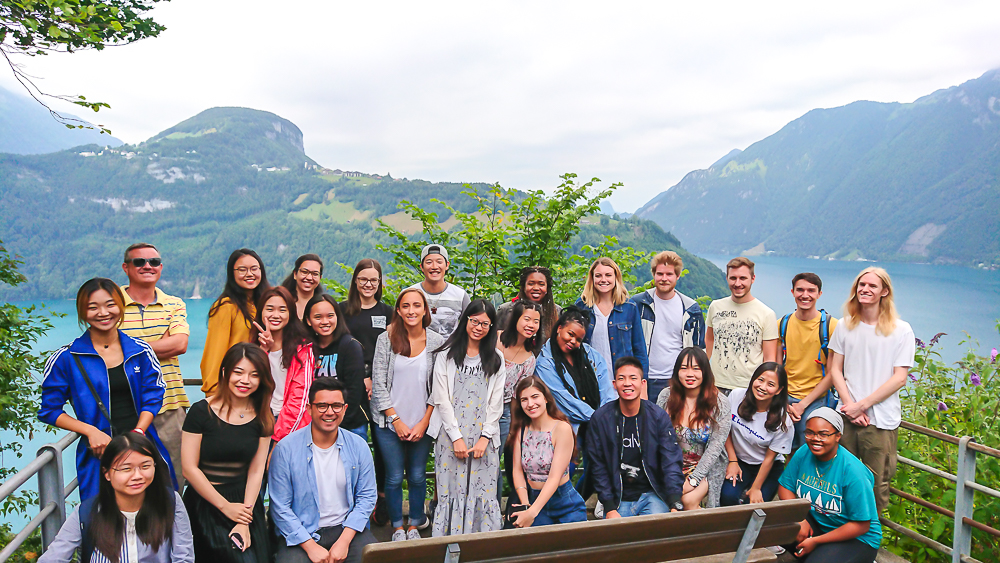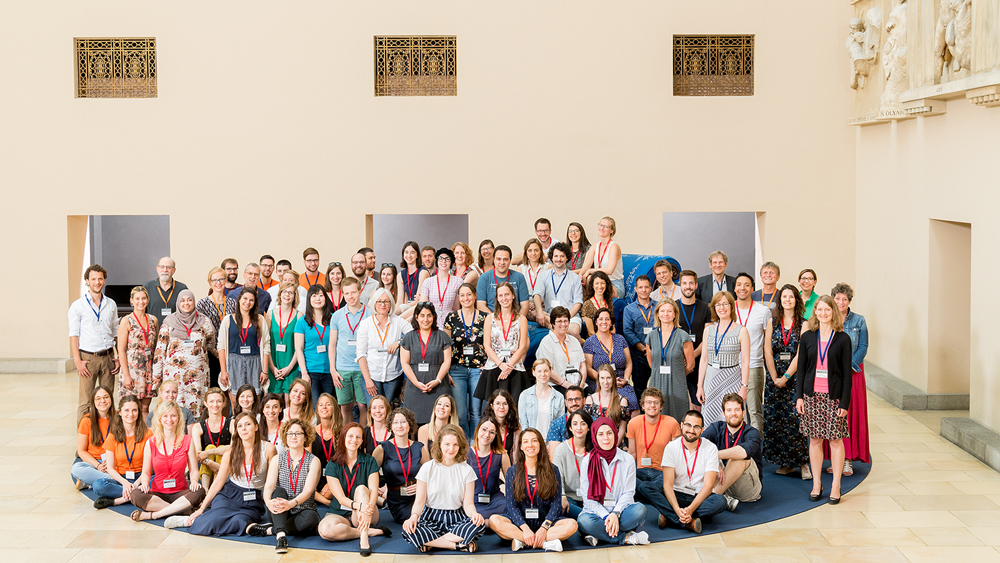School’s Not Out for Summer
Why does the Swiss Confederation have such a high level of wealth, stability and living standards? These are the types of questions that Patrick Ziltener of the UZH Institute of Sociology finds himself being asked again and again. When the researcher was approached with the idea for a summer school, he and colleagues in the same field quickly came up with a plan for two interesting study weeks on the subject “How Switzerland Got Rich”.
The summer school gives the students an insight into the sociological, historical, economic and political development of Switzerland. Trips are also organized to complement the lectures, giving the students the opportunity to visit Schwyz, Altdorf and Lucerne, where they can learn about the tradition of mercenary soldiers and see numerous elegant buildings that are today’s legacy of the wealth gained through the mercenaries. Another highlight of the summer school is a visit to Vevey and Nestlé, one of the largest Swiss multinationals.
“We want to show the students a few Swiss success stories, but without airbrushing out the negative aspects,” says Ziltener. What is his answer to the question about why Switzerland is so prosperous?
The sociologist cites firstly the industrial diversification in various areas such as mechanical engineering, finance, the chemical and pharma industries, and energy production; secondly, the high degree of cooperation between different social groups; thirdly, the political neutrality which protected Switzerland from the two world wars in particular; and fourthly the high degree of flexibility of the two-track education system. Last but not least, he also mentions immigration and multilingualism.
Presentation Opportunity
Over the course of the two weeks, professors from UZH and other universities take students deeper into the various topics. The students also have to research the literature and present their findings on one of the topics. In addition to sharing knowledge, the University can also present itself as an appealing place to study. “We would of course be very pleased if visitors to the summer school were interested in pursuing further studies, for example a doctorate, at UZH,” says Katja Durkin of the International Relations Office (IRO).
The International Summer School is aimed at Bachelor’s and Master’s students from all over the world and is taking place for the first time this year. It is part of UZH’s current internationalization strategy through which the University hopes to achieve increased international visibility. “With the International Summer School, we want to bring talented students to Zurich and offer an alternative to longer-term exchange programs,” says Durkin. In contrast to already-existing summer schools at UZH institutes and departments, which are mainly aimed at PhD candidates and postdocs and are more specialized, this interdisciplinary summer school with a broad range of topics is designed for students who are at an earlier stage in their studies. Nineteen students, mainly from English-speaking universities, registered this year. Many of them are from the University of Queensland in Australia, one of UZH’s partner universities.
Alongside the participants from abroad, seven students from UZH are also taking part in this first International Summer School. For them it offers the opportunity to have an international experience without leaving home, and maybe it will tempt them to apply for period of study abroad, which is also good for internationalization.
It has already been decided that the UZH International Summer School will run again next July, again for Bachelor’s and Master’s students. As well as the theme “How Switzerland Got Rich”, other interdisciplinary topics are planned which will appeal to students from a range of disciplines.
Another summer school took place from 1 to 14 July, this time at UZH’s Department of Psychology. In contrast to the above International Summer School, its target group were PhD candidates. The two-week Summer School 2018 of the European Association of Social Psychology (EASP) was attended by participants from over 20 different countries in Europe, America and Asia – evidence that cutting-edge research really is an international affair.
There were five workshops on offer in which participants could get to grips with the topics of social relationships and health, migration and integration, motivation and control, building and testing theories, and gender stereotypes. The summer school program was drawn up by UZH professors Urte Scholz, Veronika Brandstätter, Johannes Ulrich and Klaus Jonas.
Influential Networks
Each of the workshops was led by two professors who conduct internationally recognized research in the relevant fields. The students worked in small groups to draw up research proposals which they will put into practice after the summer school.
Research proposals coming out of previous summer schools have led to publishable research projects, and in addition the participants have created international networks which they are able to draw on for their whole careers. Many former EASP Summer School participants are now professors in universities throughout Europe whose influence extends to society and politics.
The biennial summer school is the European Association of Social Psychology’s most important event for the promotion of junior scholars. Previous participants say that they have not only benefited in terms of subject-knowledge (theory and methods), but also in terms of the contacts they have made with other junior researchers from different countries and the cultural awareness and openness they have developed as a result of this exposure.
Thanks to support from the Graduate Campus and the doctoral program of the Department of Psychology, the organizing team also managed to create opportunities for other PhD candidates from UZH to network with the summer school participants. In addition to public lectures, a social program including a city tour, a hike and an interactive museum visit offered plenty of chances for hosts and visitors to get to know each other. The hosting of the EASP Summer School at UZH also ties in with the internationalization strategy of the Faculty of Arts and Social Sciences.

